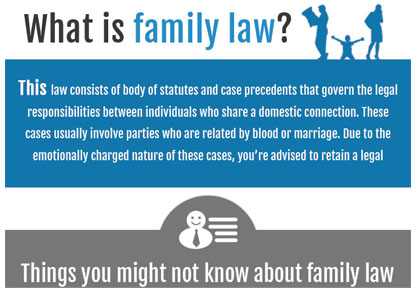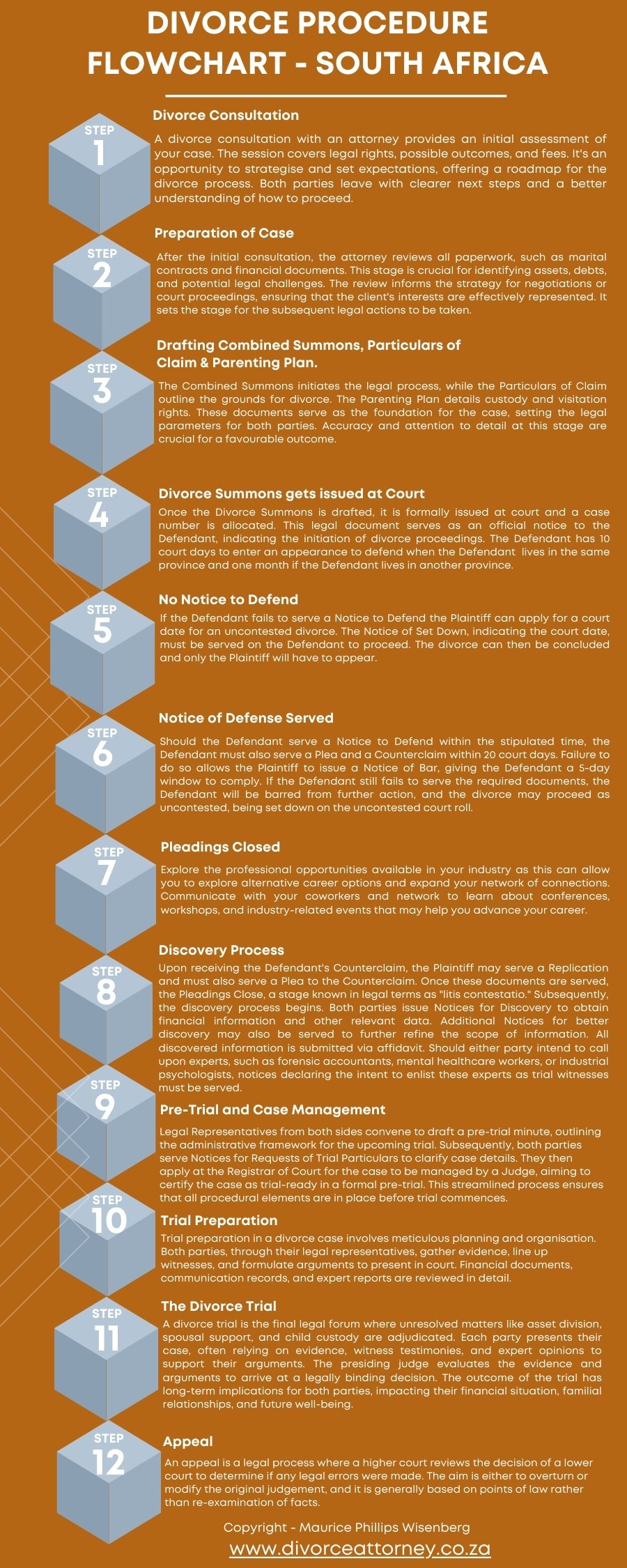What do family law solicitors do?
Family law solicitors play a vital role in helping individuals navigate the often complex and emotionally charged world of family law. From divorce and separation to child custody and property disputes, these legal experts provide essential guidance and support to families during some of the most challenging times of their lives. But what exactly do family law solicitors do, and how can they assist you in resolving your family law matters? In this article, we’ll delve into the role of family law solicitors, exploring their responsibilities, services, and the benefits of seeking their expertise.
Understanding the Role of Family Law Solicitors
Family law solicitors play a crucial role in guiding individuals through complex legal processes related to family matters. These solicitors are trained professionals who specialize in providing expert advice and representation in various areas of family law. Here, we’ll delve into the specifics of what family law solicitors do and how they can help.
Providing Legal Guidance and Support
Family law solicitors offer guidance and support to individuals going through difficult times, such as divorce, separation, or child custody battles. They provide emotional support and empathy while explaining the legal implications of each decision, helping clients make informed choices. By understanding the complexities of family law, solicitors can identify potential pitfalls and opportunities, ensuring their clients’ rights are protected.
Representing Clients in Court Proceedings
In addition to providing guidance, family law solicitors are skilled advocates who represent clients in court proceedings. They prepare cases, gather evidence, and present arguments on behalf of their clients, ensuring their rights are upheld. With extensive knowledge of family law and courtroom procedures, solicitors can navigate complex legal systems, minimizing stress and anxiety for their clients.
Negotiating Settlements and Agreements
Family law solicitors are skilled negotiators who work to reach fair settlements and agreements on behalf of their clients. They understand the importance of finding mutually beneficial solutions, especially in cases involving children or complex financial arrangements. By leveraging their expertise, solicitors can negotiate favorable outcomes, reducing the need for protracted court battles.
Mediation and Alternative Dispute Resolution
In some cases, family law solicitors may recommend mediation or alternative dispute resolution (ADR) methods to resolve disputes. These processes involve impartial third-party facilitators who help parties reach agreements without going to court. Solicitors can guide clients through these processes, ensuring their rights are protected while promoting a more collaborative and cost-effective approach.
Preparing and Drafting Legal Documents
Family law solicitors are responsible for preparing and drafting legal documents, such as divorce petitions, separation agreements, and parenting plans. These documents require precision and attention to detail, as they have significant legal implications. Solicitors ensure that all necessary information is included, and documents are completed accurately and efficiently.
| Service | Description |
|---|---|
| Divorce and Separation | Guidance on divorce and separation procedures, including property division and spousal support |
| Child Custody and Access | Representation in child custody disputes, including negotiating parenting plans and access arrangements |
| Financial Disputes | Assistance with resolving financial disputes, including property division, maintenance, and child support |
| Cohabitation Agreements | Drafting and negotiating cohabitation agreements for unmarried couples |
| Pre-Nuptial Agreements | Preparing and negotiating pre-nuptial agreements to protect assets and interests |
Where do family lawyers make the most money?

Family lawyers can earn a significant income, but their salaries vary depending on factors such as location, experience, and industry. Here are some of the top-paying cities and industries for family lawyers:
Top-Paying Cities for Family Lawyers
Family lawyers in urban areas tend to earn more than those in rural areas. Here are some of the top-paying cities for family lawyers:
- New York City, NY: Family lawyers in New York City earn an average annual salary of $174,000, making it one of the highest-paying cities for family lawyers.
- Los Angeles, CA: Family lawyers in Los Angeles earn an average annual salary of $164,000, with opportunities to work with high-net-worth clients and celebrities.
- San Francisco, CA: Family lawyers in San Francisco earn an average annual salary of $159,000, with a high demand for their services in the tech industry.
High-Paying Industries for Family Lawyers
Family lawyers can work in various industries, including law firms, government agencies, and non-profit organizations. Here are some of the high-paying industries for family lawyers:
- Law Firms: Family lawyers working in law firms earn an average annual salary of $145,000, with opportunities to work on high-stakes cases and earn bonuses.
- Finance and Banking: Family lawyers working in finance and banking earn an average annual salary of $135,000, with a focus on high-net-worth clients and complex financial transactions.
- Government Agencies: Family lawyers working in government agencies earn an average annual salary of $125,000, with opportunities to work on policy and advocacy.
Factors Affecting Family Lawyer Salaries
Several factors can affect a family lawyer’s salary, including:
- Experience: More experienced family lawyers tend to earn higher salaries, with senior lawyers earning up to $200,000 per year.
- Location: Family lawyers working in urban areas tend to earn more than those in rural areas, due to a higher cost of living and a greater demand for their services.
- Industry: Family lawyers working in high-paying industries such as finance and banking tend to earn more than those working in non-profit organizations or government agencies.
What is a legal family?

A legal family refers to a group of people related by blood, marriage, or adoption, recognized by law as a family unit. This can include parents, children, spouses, siblings, and other relatives, as well as those related through adoption or foster care. The legal family is typically bound together by legal relationships, such as marriage or parenthood, and is often recognized by the state and other legal authorities.
Key Characteristics of a Legal Family
A legal family is typically defined by the following characteristics:
- The family is recognized by the state and other legal authorities, such as courts and government agencies.
- The family members are related by blood, marriage, or adoption.
- The family is bound together by legal relationships, such as marriage or parenthood.
Legal Rights and Responsibilities of a Legal Family
As a recognized legal family, members have certain legal rights and responsibilities, including:
- The right to make medical decisions for one another.
- The right to inherit property and assets from one another.
- The responsibility to provide financial support to one another.
Legal Protections for a Legal Family
A legal family is also entitled to certain legal protections, including:
- Protection from domestic violence and abuse.
- Protection of individual rights and freedoms within the family unit.
- Protection of family assets and property.
How to become a family advocate in South Africa?

To become a family advocate in South Africa, one needs to follow a specific path that involves education, training, and registration. A family advocate, also known as a family law attorney, specializes in family law and provides legal representation to families, individuals, and children in family-related matters.
Meet the Basic Requirements
To become a family advocate in South Africa, one needs to meet the basic requirements set by the Legal Practice Council (LPC). These requirements include:
- Obtaining a Bachelor of Laws (LLB) degree from a recognized university in South Africa
- Completing a one-year practical legal training course, known as articles of clerkship, under the supervision of an experienced attorney
- Passing the LPC’s admission examination to become an attorney
Gain Relevant Experience and Training
To specialize in family law, one needs to gain relevant experience and training in this field. This can be achieved by:
- Working under the supervision of an experienced family law attorney
- Attending workshops, seminars, and conferences on family law
- Participating in mentorship programs or internships with reputable family law firms
Register with the Relevant Authorities
To practice as a family advocate in South Africa, one needs to register with the relevant authorities. This includes:
- Registering with the Legal Practice Council (LPC) as an attorney
- Obtaining a fidelity fund certificate, which is a requirement for all attorneys in South Africa
- Joining the Law Society of South Africa (LSSA) or other relevant professional organizations
How to become a divorce lawyer in South Africa?

To become a divorce lawyer in South Africa, you need to follow a specific path that involves acquiring the necessary education, training, and experience.
Education and Qualifications
To practice law in South Africa, you must hold a Bachelor of Laws (LLB) degree from a recognized university. The LLB program typically takes four years to complete and covers a broad range of legal subjects, including family law, contracts, torts, and criminal law. After completing your LLB degree, you must also pass the National Bar Examination conducted by the Legal Practice Council (LPC) to be admitted as an attorney.
Some universities in South Africa offer postgraduate degrees in law, such as a Master of Laws (LLM) or a Doctor of Laws (LLD), which can be beneficial for specializing in divorce law. However, these degrees are not mandatory to practice as a divorce lawyer.
Gaining Experience and Building Your Skills
To become a competent divorce lawyer, you need to gain practical experience in the field. You can start by interning or articling with an experienced divorce lawyer or law firm that specializes in family law. This will give you hands-on experience in drafting divorce papers, attending court proceedings, and interacting with clients.
To build your skills, you can also:
- Attend workshops, seminars, and conferences on divorce law and family law.
- Join professional organizations, such as the Law Society of South Africa or the Family Law Association, to network with other lawyers and stay updated on the latest developments in divorce law.
- Develop strong communication and negotiation skills, as these are essential for resolving disputes and negotiating settlements in divorce cases.
Specializing in Divorce Law
To specialize in divorce law, you can pursue additional qualifications or certifications, such as:
- A Certificate in Family Law from the University of South Africa (UNISA) or other recognized institutions.
- A Diploma in Divorce Mediation from the South African Mediation Association or other accredited organizations.
- Accreditation as a family law specialist from the Law Society of South Africa or other professional bodies.
Additionally, you can focus on developing expertise in specific areas of divorce law, such as child custody, property division, or spousal maintenance. By doing so, you can establish yourself as a reputable and skilled divorce lawyer in South Africa.
More Information
What services do family law solicitors provide?
Family law solicitors provide a wide range of services to individuals and families going through various legal issues related to family relationships. They assist clients with matters such as divorce, separation, child custody, child support, alimony, property division, and other related issues. Family law solicitors also help clients with prenuptial agreements, postnuptial agreements, and cohabitation agreements. Additionally, they provide guidance on adoption, surrogacy, and other family-building options. They also offer mediation and arbitration services to help clients resolve disputes outside of court.
Do family law solicitors only handle divorce cases?
No, family law solicitors do not only handle divorce cases. While divorce is a significant part of their practice, they also handle a variety of other family law matters. They assist clients with issues related to children, such as child custody, child support, and visitation rights. They also handle cases involving domestic violence, protection orders, and other safety-related issues. Furthermore, family law solicitors help clients with estate planning, wills, and trusts, as well as with guardianship and conservatorship matters. They may also assist with matters related to fertility law, including surrogacy andegg or sperm donation.
How do family law solicitors communicate with their clients?
Family law solicitors communicate with their clients in a sensitive, compassionate, and transparent manner. They understand that family law matters can be emotionally charged and stressful, and they strive to provide reassurance and guidance throughout the legal process. They typically communicate with clients through regular meetings, phone calls, emails, and letters, keeping them informed about the progress of their case. Family law solicitors also take the time to listen to their clients’ concerns, answer their questions, and address their fears and anxieties. They may also involve other professionals, such as counselors or financial advisors, to ensure that clients receive comprehensive support and guidance.
Can family law solicitors help prevent family law disputes from occurring?
Yes, family law solicitors can help prevent family law disputes from occurring. They can assist clients in drafting prenuptial agreements, postnuptial agreements, and cohabitation agreements that clearly outline the parties’ rights and responsibilities in the event of a separation or divorce. They can also help clients develop parenting plans and other agreements that promote cooperation and reduce conflict. Family law solicitors can provide guidance on effective communication and conflict resolution strategies, helping clients to navigate difficult conversations and avoid contentious disputes. By providing proactive guidance and support, family law solicitors can help clients avoid costly and emotionally draining legal battles.










